Sleep Lab in Turkey
Healthy Türkiye helps you find the best sleep lab in Turkey at affordable prices and adopts a 360-degree service approach in all areas of health through affiliated hospitals.
- Medical Treatment
- Medical Check-Ups in Turkey
- Colonoscopy in Turkey
- Vision Checkup in Turkey
- Electrocardiogram in Turkey
- General Check-Up in Turkey
- Hearing Screening Test in Turkey
- Allergy Skin Test in Turkey
- Gynecological Exam in Turkey
- Prostate Cancer Screening in Turkey
- Skin Cancer Screening in Turkey
- Stress Test in Turkey
- Bone Density Test in Turkey
- Diabetes Risk Test in Turkey
- Executive Check-Up in Turkey
- Gastroscopy in Turkey
- Sleep Lab in Turkey
- Homepage
- Medical Treatment
- Sleep Lab in Turkey
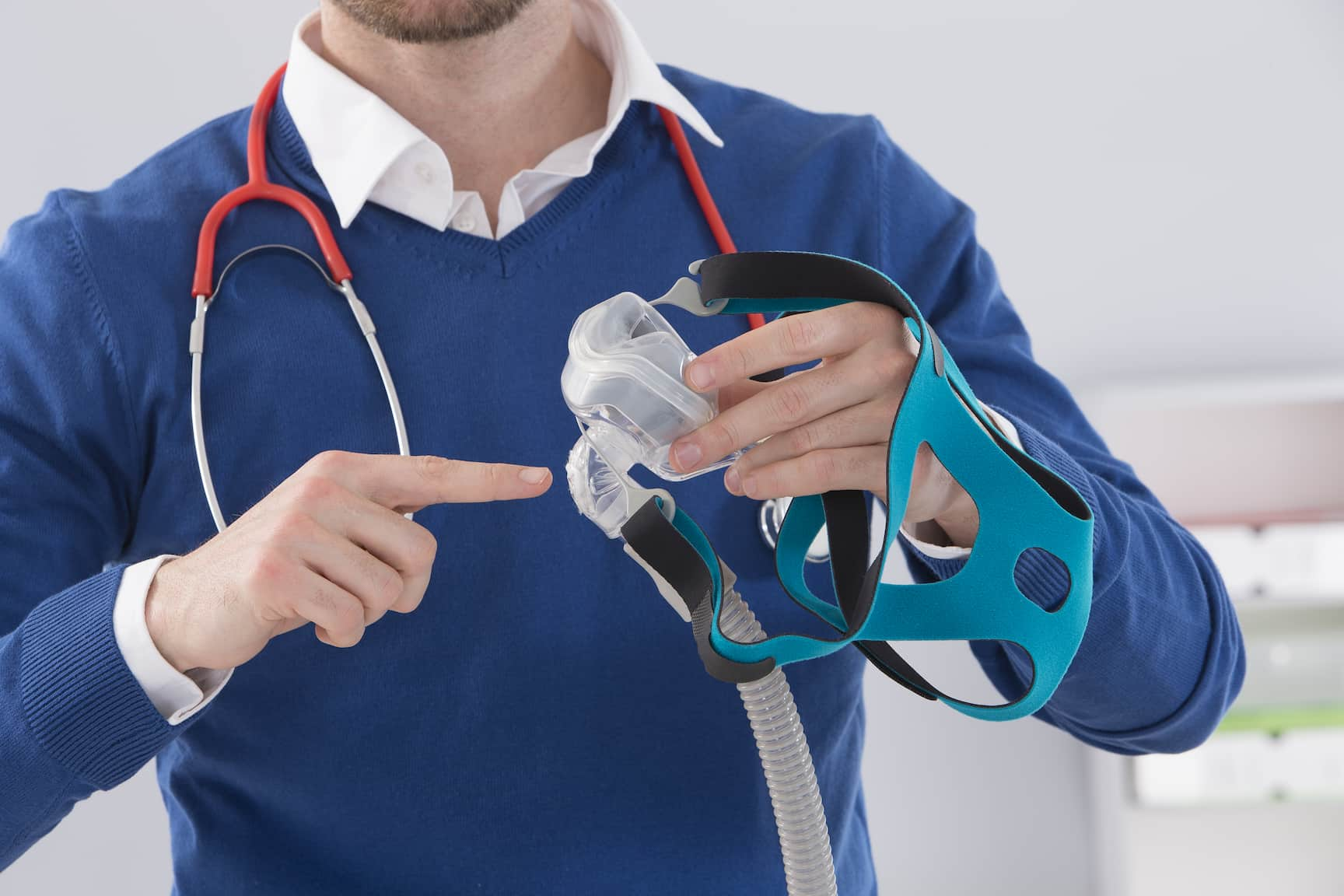
About Sleep Lab in Turkey
Sleep Lab in Turkey is the clinic for polysomnography which is a sleep study. This test records exact body functions as you sleep, or try to sleep. Polysomnography is used to find sleep disorders. Sleep disorders can cause many troubling symptoms that might affect one’s mood, energy level, and overall health. Unfortunately, sleep disorders are notoriously underdiagnosed because they generally develop gradually over time and have symptoms that are difficult to recognize.
Accurate diagnosis is required for the efficient treatment of sleep disorders. A sleep study can reveal the underlying reasons for a person’s symptoms, including whether or not a sleep problem is present. Sleep studies are also used to check therapy responses in persons who have sleep problems.
Avoid alcohol and naps on the day of your sleep study for better sleep. After lunch, avoid any caffeine-containing beverages (including coffee, tea, cola, and chocolate). Make sure to tell your doctor about all of your drugs and supplements before your sleep study. Follow your doctor’s advice and bring comfy jammies and a book or magazine to read.
It is not expected you to sleep as well as you would at home, and it is taken into account. The majority of individuals sleep better than they expect. The techs are also quite comforting. If you need to use the restroom during the study, simply let them know. The technician who is monitoring your sleep will unplug the cords for you.
While you’re sleeping, a lot happens in your brain and body. Tracking this activity during a sleep study can assist your doctor in diagnosing and treating a number of sleep problems, such as sleep apnea and restless legs syndrome, as well as serving as an examination for specific reasons for excessive drowsiness. You are not alone if you have concerns about doing a sleep study. Healthy Türkiye responses that will assist you to comprehend the procedure and set your mind at ease.
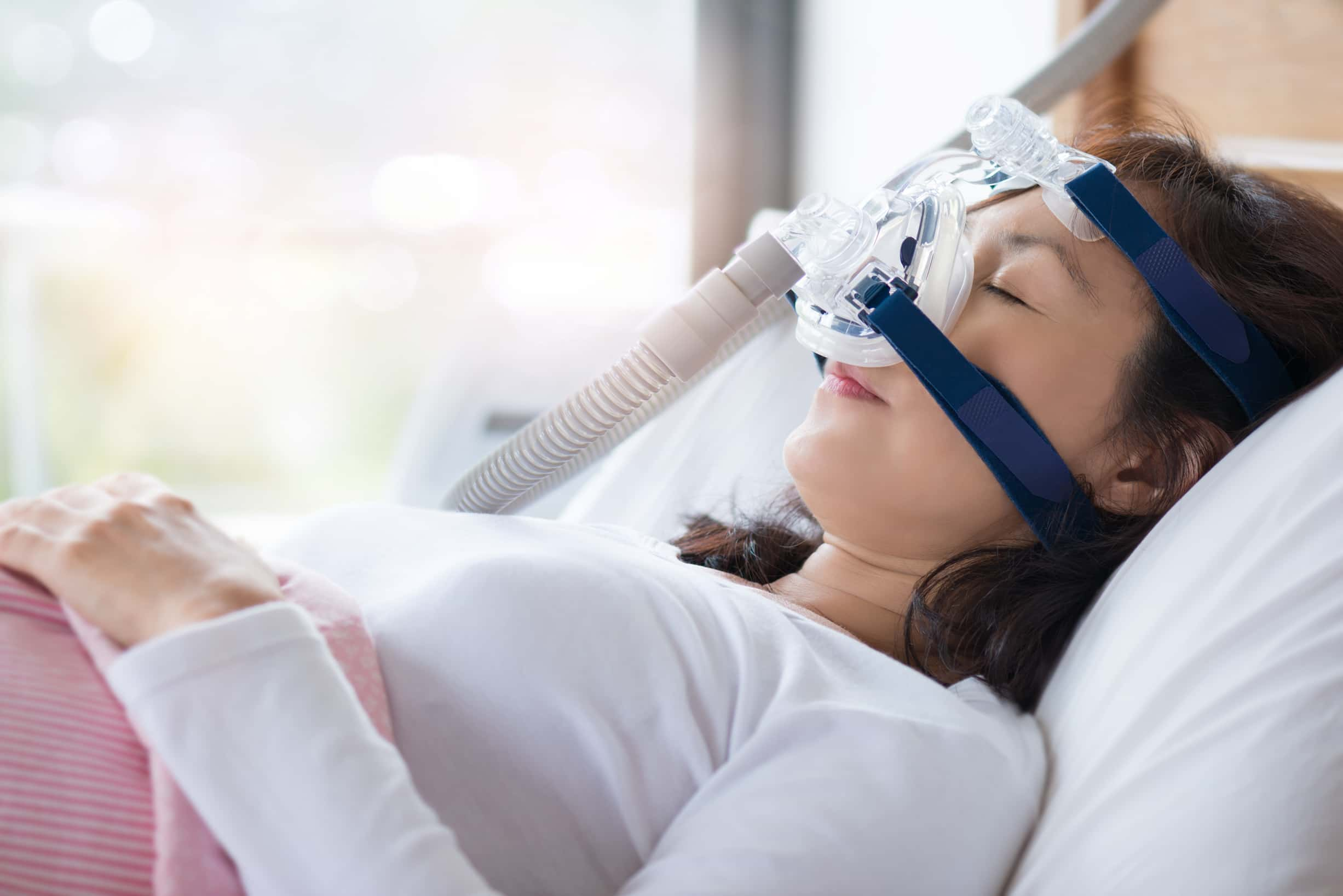
Scope of Sleep Lab in Turkey
Sleep lab in Turkey is to test that determines what occurs to your body while you are sleeping. When we sleep, we are frequently unaware of what is going on with our fundamental systems. For example, our breathing may become labored, we may snore, or we may make strange motions. A polysomnogram is the most common form of sleep research.
A polysomnogram, or sleep study, can aid in the diagnosis of sleep apnea, restless leg syndrome (RLS), and other sleep disorders. People usually spend the night in a hospital sleep laboratory or an outpatient sleep clinic, where electrodes are placed on their bodies to record their brain waves, respiration, and movement.
During a sleep study, a technician monitors your sleep and gathers other data. The more you understand why the study is vital, the more at ease you will be in that environment. This article describes what a sleep study is and how to prepare for one. It provides a step-by-step explanation of what happens throughout the study, as well as how results are analyzed and what may happen next. Healthy Türkiye provides you to have the best treatment at sleep labs in Turkey
If you have difficulties falling asleep, wake up frequently, snore, or have other signs of a sleep disturbance, your healthcare physician may recommend a sleep study. Based on the results of a narcolepsy screening test, a polysomnogram may be recommended (excessive daytime sleepiness). The Epworth Sleepiness Scale is the name of the exam. Sleep studies are designed to find sleep disorders, including:
Circadian rhythm disorders
Excessive daytime sleepiness
Insomnia
Narcolepsy
Parasomnias (sleep behaviors)
Periodic limb movements
Sleep apnea
A technician in the next room collects your brain activity and chooses information from your body as you sleep in a high-tech sleep lab that appears like a comfy hotel room. This information paints a complete picture of your individual sleep patterns, including how much time you spend in light and deep phases, if you’re getting enough oxygen, how frequently you awaken (even slightly), and whether sleep is interrupted by things like arm and leg movements.
Why Are Sleep Studies Done?
Sleep studies are exams that monitor particular bodily systems while you sleep. Heart rate, breathing rate and airflow, brain wave activity, eye movement, blood oxygen level, and muscular movement are all examples of body activities that may be evaluated when sleeping.
Following the program sleep lab in Turkey, all health records are saved, and you may stay in touch with your Healthy Türkiye adviser to assist in monitoring your health condition.
If your doctor suspects you have a sleep disorder, he or she may recommend a sleep study. Sleep studies aid in the diagnosis of sleep disorders such as apnea, narcolepsy, parasomnias, and insomnia. Another reason to do a sleep study is to see if a certain treatment, such as positive airway pressure (PAP) therapy for patients who have breWhat are the signs of a sleep disorder? If you experience any of the following symptoms, you may have a sleep disorder:
During sleep, I snore loudly.
You immediately come to, gasping for air.
During the day, you may feel fatigued and drowsy.
Toss and turn or are restless when sleeping
Having trouble falling and staying asleep
If your doctor suspects you have a sleep disorder, he or she may recommend a sleep study. Sleep studies aid in the diagnosis of sleep disorders such as apnea, narcolepsy, parasomnias, and insomnia. They also examine to see if particular therapies are effective.
What Types of Tests Are Performed in a Sleep Study?
A polysomnogram (PSG) or in-lab sleep study in Turkey is a thorough examination used to diagnose sleep and wake problems. These tests are performed overnight in a sleep study facility, hospital, or other specified location, and are overseen by a certified sleep technologist. The following are examples of common in-lab sleep studies:
Diagnostic (routine) overnight PSG: This is a sleep study that examines the stages of sleep (including the amount of stage 1, stage 2, stage 3, and rapid eye movement (REM sleep), arousals/awakenings from sleep, and body functions during sleep and wakefulness, such as breathing patterns, brain wave activity, heart rhythms, and muscle movements. It is often used to assess sleep-related respiratory abnormalities (sleep apnea) or aberrant sleep movements (REM sleep behaviour disorder or frequent leg movements).
Positive Airway Pressure (PAP) titration study: This test is done after a sleep apnea diagnosis has been obtained. The study’s goal is to discover the optimal PAP machine pressure setting for treating sleep apnea. While the patient is sleeping, the air pressure given through the PAP mask is gradually increased until the pauses in breathing caused by sleep apnea are controlled.
Split-night PSG with PAP titration: Night divided When severe sleep apnea is found during the first half of the regular PSG, PSG is performed. The second portion of the night is utilised to test the PAP treatment settings.
Multiple sleep latency test (MSLT): This is a daily sleep research with five 20-minute nap sessions spaced two hours apart. The exam assesses a person’s proclivity to fall asleep during regular waking hours. MSLT is used to identify narcolepsy and other types of hypersomnia (excessive sleepiness). It is conducted in the morning after an usual overnight PSG to ensure precise findings.
Maintenance of wakefulness test (MWT): This test measures how well you can stay awake in situations where it is easy to fall asleep. Patients typically spend 40 minutes in the dark every two hours during the day, for a total of four trials. This test is used to evaluate safety hazards (such as the inability to stay awake while driving) and interventions to avoid drowsiness.
How to Prepare for a Sleep Study in Turkey?
A sleep study entails spending the night in a sleep centre, hospital, or even a separate hotel room. These settings are designed to make you as comfortable as possible so that you can get a good night’s sleep. Typically, you will not be required to report for your sleep study until late in the afternoon. You should do the following on the day of your sleep study:
Maintain as much of your usual schedule as feasible.
Avoid resting after lunch. Avoid using hair sprays or gels that may interfere with sleep tracking.
Unless otherwise directed by your doctor, avoid alcohol and other sedatives.
Your doctor may advise you to temporarily stop taking certain drugs before undergoing a sleep study.
Bring any materials you need for your nighttime routine when you report for your sleep study. Prepare for the sleep study as if you were going to spend the night in a hotel. You may wish to bring the following items:
Makeup remover
Reading material
Clean clothing for the morning
When you come, a sleep technician will inquire about your sleeping patterns. You may be asked to complete a questionnaire. You will have some free time to settle in. In your room, there will be no other patients. You will have access to a restroom and perhaps a television.
What to Expect During a Sleep Study in Turkey?
When you arrive at a clinic for polysomnography, you will be allocated a room. Before you go to bed, a technician glues or tapes painless sensors to your head and body to capture data in Turkey. If you need to use the restroom, the technician will disconnect the sensors and reconnect them when you return.
You may read and relax in bed until it’s time to sleep. The technician will be there to monitor and record the findings of your test, as well as to assist you with any problems that arise throughout the night. When you wake up in the morning and have the sensors removed, the sleep test is over.
Multiple sleep latency testing is occasionally administered the day following polysomnography. Sensors will be fitted to you to collect data on your sleep habits over the course of five planned two-hour nap sessions. The technologist will alert you that it is time for a nap at the start of each nap session, and you will relax and try to fall asleep.
In home sleep apnea testing, your doctor will provide you with a gadget and instructions on how to use it. Before going to bed, attach the sensors and switch on the gadget according to the instructions. Go to bed at your normal time. The gadget will continue to gather data until you wake up and remove the sensors in the morning. If you are considering to have sleep study in Turkey, Healthy Türkiye will answer all about your concerns.
Sleep Study Results
For decades, polysomnography (PSG), sometimes known as a “sleep study,” has been used to diagnose and assess the severity of sleep-disordered breathing. Because of increased public awareness of sleep problems, there has been a large increase in demand for sleep-related examinations and sleep studies.
When the sleep study is finished, the sleep study report is forwarded to the referring physician, along with a treatment suggestion. There is currently no uniformity of the reporting process; reports are based on certain aspects that offer quantitative information about the patient’s sleep and its departure from normal. The main physician’s interpretation of these outcomes is critical in clinical decision-making and patient care.
Sleep study reports are often divided into sections that include patient information such as sleep-related complaints, technical details, quantitative data on the distribution of different phases of sleep known as sleep architecture, and sleep staging. The technical data include the number of electroencephalograms (EEG), electrooculogram, chin and leg electromyograms, electrocardiograms, and airflow measurements at the nose and mouth.
Plethysmographic strain belts capture the motions of the chest and abdominal wall. The oxygen saturation is measured using continuous pulse oximetry, and the snoring microphone is utilised to capture the snoring and its intensity. A Montage is a wire and belt setup that records many simultaneous metrics. The indications for the research are documented in the context of the patient’s symptoms, history, medical, psychological, and sleep-related disorders, as well as their medicines. Each of these components has a substantial influence on the data recording and interpretation of the sleep research.
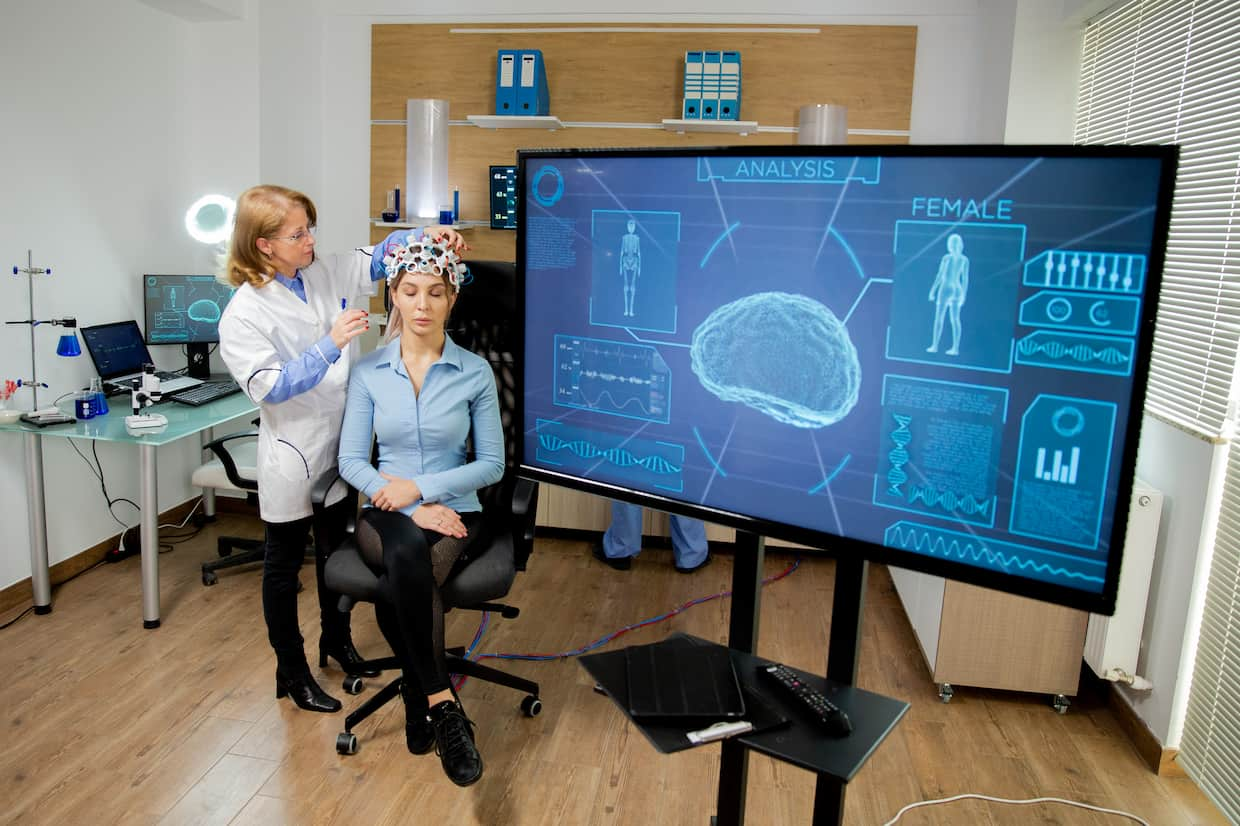
We Care About Your Health
Healthy Türkiye provides the best for your health and comfort. You will feel privileged with us.
7/24 Quality Personal Assistance Throughout Your Journey
Customizable for You All-Inclusive Packages
Get the Right Advice for your Health
What Happens After Sleep Study in Turkey?
As soon as your study is over, make an appointment to see the doctor who referred you for the study or the sleep expert who analysed your data. This is generally the doctor who works at the clinic where your study was conducted.
Most doctors have limited expertise in sleep and would prefer that you discuss your research results with a sleep specialist. Some doctors, however, might like to discuss the results with you directly. As a result, it is always preferable to consult with your doctor about who you should schedule this follow-up with. During this session, the doctor will go over the findings of your sleep study, discuss your diagnosis, and give treatment suggestions.
If you are diagnosed with sleep apnea, you will almost certainly be prescribed PAP (positive airway pressure) therapy. This involves using air pressure to’splint’ open your airway as you sleep to avoid the airway constraints that cause sleep apnea’s low oxygen levels and brain activation. Other treatment methods may involve dental devices that open the airway by jaw manipulation. One of the sleep disorders that may be identified include Narcolepsy, PLMD (periodic limb movement disorder), RBD (REM behaviour disorder), and Insomnia. These problems can be addressed in a variety of methods, including medication and CBT (Cognitive Behavior Therapy).
In the end, everything comes down to a waiting game. This might lead to some stressful days since people are naturally curious about how things went, whether anything went wrong, and how it might be addressed. The most crucial thing you can do is schedule your follow-up visit as soon as you finish your sleep study, either with your referring provider or with the sleep specialist.
Sleep Study Follow-Up
Following the first consultation and completion of numerous diagnostic procedures, including a sleep study, a sleep medicine follow-up visit is scheduled with a sleep specialist and/or a general physician. The primary objective is to determine the source of the patient’s sleep issues and the appropriate treatment techniques.
The attending physician will assess the patient’s medical and family history, drugs used, lifestyle, and symptoms being encountered during the follow-up. The doctor then goes through the test results with the patient. At this point, he can either make a definitive diagnosis or order more testing to get a more conclusive conclusion. In either case, the possible treatment or management plan will be discussed during the follow-up visit.
Treatment may involve medicine or the use of a machine, such as for people who have sleep apnea and need a CPAP machine to open up the airway so they can breathe correctly at night. In such circumstances, the doctor would also instruct the patient on how to use the machine, as well as how to wear the mask and care for the equipment.
If sleep issues are caused by mental illnesses such as depression, the sleep doctor may send the patient to a psychologist or psychiatrist. The psychiatrist or psychologist may then commence cognitive behaviour therapy (CBT), in which the patient’s perspective is adjusted so that he or she adopts a more positive way of thinking.
What If I Can’t Sleep During a Sleep Study?
Because of the sensors and the strange surroundings, it is common to sleep less than usual during polysomnography. This usually has no effect on the outcome of your test, but please notify your doctor if you have any concerns.
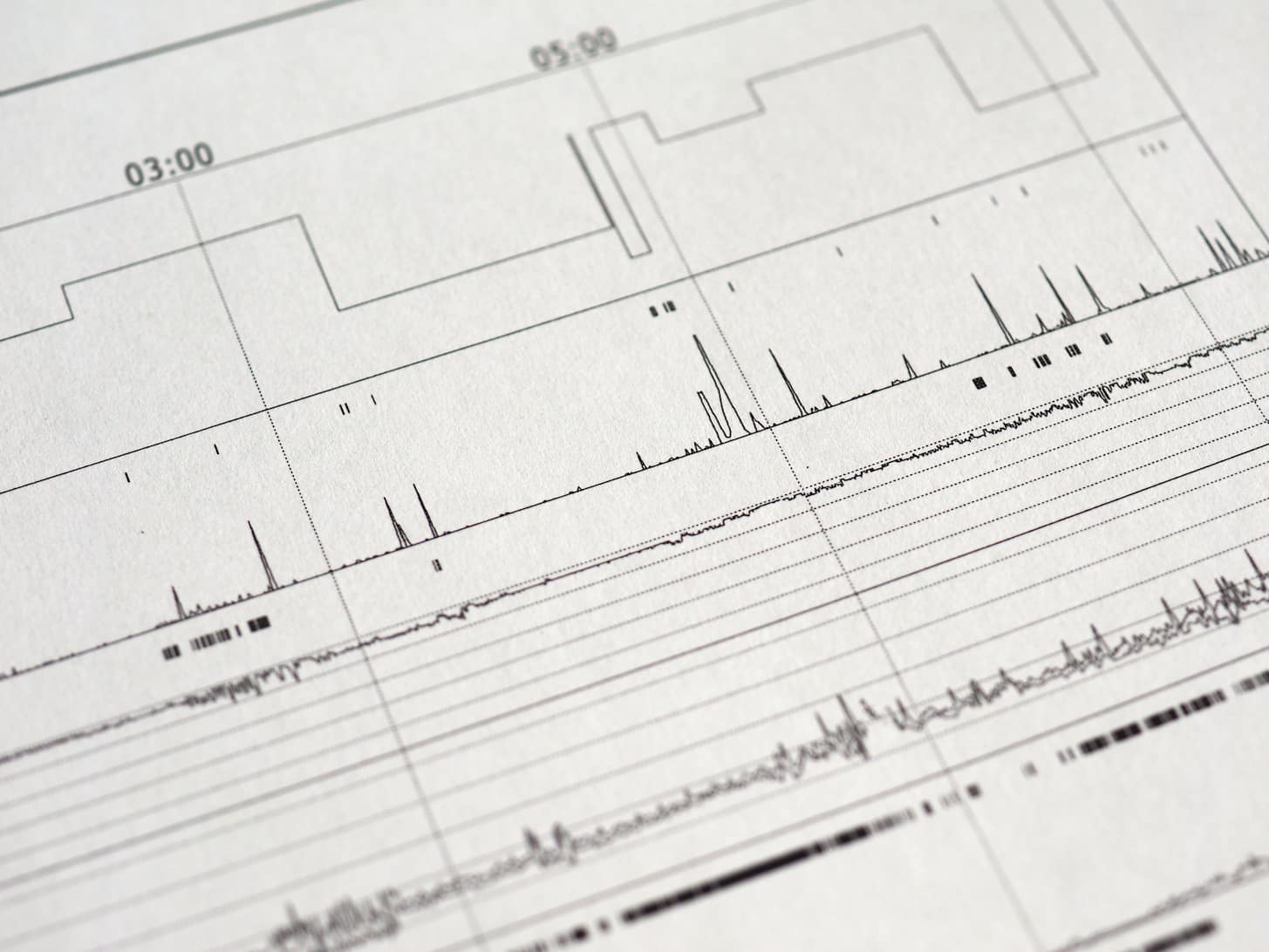
2026 Cost of Sleep Lab in Turkey
All types of medical attentions like sleep lab are very affordable in Turkey. Many factors are also included in determining the cost of sleep lab in Turkey. Your process with Healthy Türkiye will last from the time you decide to have a sleep lab in Turkey until the time you are fully recovered even if you are back home. The exact sleep lab procedure cost in Turkey depends on the type of operation involved.
The cost of sleep lab in Turkey does not demonstrate many variations in 2026. Compared to costs in developed countries like the United States or the UK, sleep lab costs in Turkey are relatively low. So, it’s no wonder patients from across the world visit Turkey for sleep lab procedures. However, the price is not the only factor affecting choices. We suggest looking for hospitals that are safe and have sleep lab reviews on Google. When people decide to seek medical help for sleep lab, they will not only have had low-cost procedures in Turkey, but also the safest and best treatment.
At clinics or hospitals contracted with Healthy Türkiye, patients will receive the best sleep lab from specialist doctors in Turkey at affordable rates. Healthy Türkiye teams provide medical attention sleep lab procedures and high-quality treatment to patients at a minimum cost. When you contact Healthy Türkiye assistants, you can get free information about the cost of a sleep lab in Turkey and what this cost covers.
Why Is Sleep Lab Cheaper in Turkey?
One of the main considerations before traveling abroad for sleep lab is the cost-effectiveness of the whole process. Many patients think that when they add flight tickets and hotel expenses to their sleep lab costs, it will become very expensive to travel, which is not true. Contrary to popular belief, round-trip flight tickets to Turkey for sleep lab can be booked very affordably. In this case, assuming you are staying in Turkey for your sleep lab, your total travel expense of flight tickets and accommodation will only cost less than any other developed country, which is nothing compared to the amount that you are saving.
The question “Why is sleep lab cheaper in Turkey?” is so common between patients or people simply curious about getting their medical treatment in Turkey. When it comes to sleep lab prices in Turkey, there are 3 factors allowing cheaper prices:
The currency exchange is favorable for whoever looking for sleep lab has a euro, dollar, or pound;
The lower cost of living and cheaper overall medical expenses such as sleep lab;
For sleep lab, incentives are given by the Turkish Government to medical clinics working with international clients;
All these factors allow for cheaper sleep lab prices, but let’s be clear, these prices are cheaper for people with strong currencies (as we said, euro, dollar, Canadian dollar, pound, etc).
Every year, thousands of patients from all over the world come to Turkey to get sleep lab. The success of the healthcare system has increased in recent years, especially for sleep lab. It’s easy to find well-educated and English-speaking medical professionals in Turkey for all kinds of medical treatment such as sleep lab.
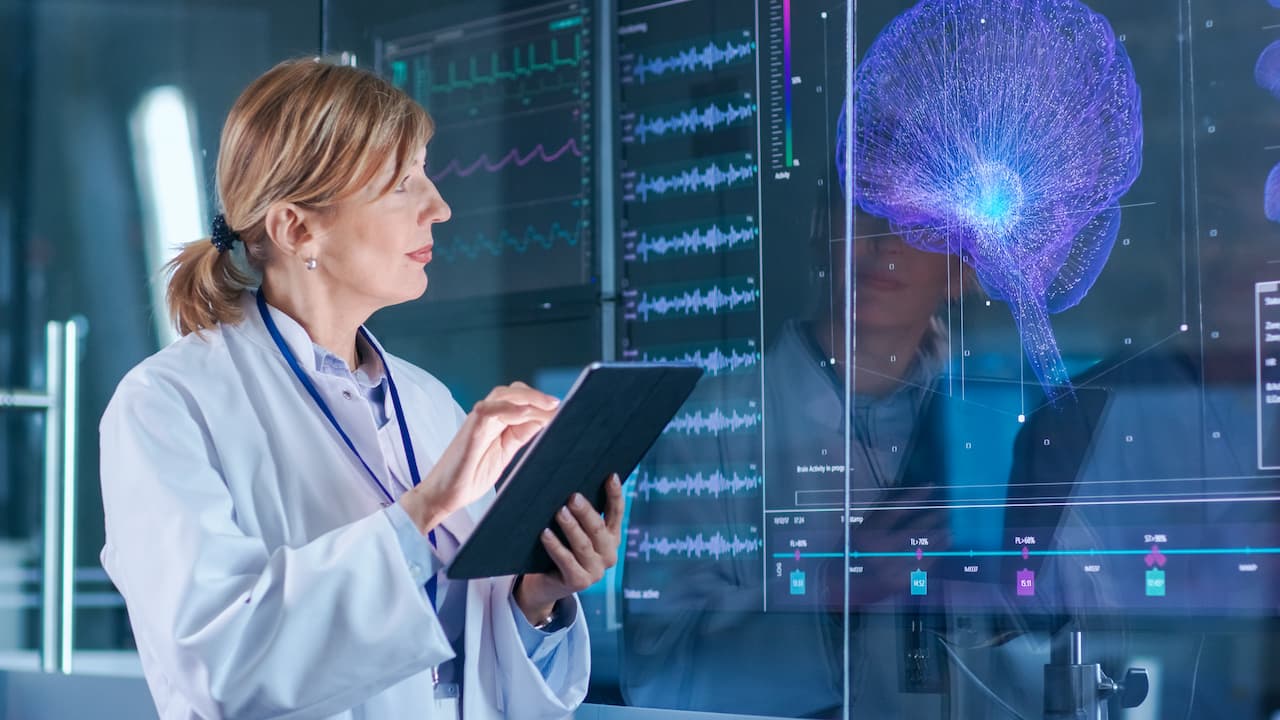
Why Choose Turkey for Sleep Lab?
Turkey is a common choice among international patients seeking advanced sleep lab. Turkey’s health procedures are safe and effective operations with a high success rate like sleep lab. The increasing demand for high-quality sleep lab at affordable prices has made Turkey a popular medical travel destination. In Turkey, sleep lab is performed by highly experienced and trained doctors with the most advanced technology in the world. sleep lab is done in Istanbul, Ankara, Antalya, and other major cities. The reasons for choosing sleep lab in Turkey are as follows:
High-quality hospitals: Joint Commission International (JCI) accredited hospitals have dedicated sleep lab units that are specially designed for patients. International and national strict protocols provide effective and successful sleep lab for patients in Turkey.
Qualified experts: The expert teams include nurses and specialist doctors, together to carry out sleep lab according to the patient’s needs. All the included doctors are highly experienced in performing sleep lab.
Affordable price: The cost of sleep lab in Turkey is affordable compared to Europe, the USA, the UK, Singapore, Australia, etc.
The high success rate: Highly experienced specialists, the best available technology, and stringently followed safety guidelines for post-operative care of the patient, resulting in a high success rate for sleep lab in Turkey.
In order to enhance the reliability of sleep studies conducted in Turkey’s Sleep Lab, a recent study was undertaken to assess the efficacy of polysomnography in diagnosing sleep disorders. The study involved a diverse group of participants and focused on the accuracy of identifying sleep problems, such as sleep apnea and restless legs syndrome, through comprehensive monitoring of brain and body functions during sleep. The results emphasized the importance of sleep studies in providing accurate diagnoses and guiding effective treatment strategies for individuals experiencing sleep-related issues, reinforcing the credibility of Turkey’s Sleep Lab in addressing sleep disorders.
Is Sleep Lab Safe in Turkey?
Did you know Turkey is one of the most visited destinations for sleep lab in the world? It is ranked one of the most visited tourist destinations for sleep lab. Over the years it has also come to be a very popular medical tourism destination too with many tourists coming in for sleep lab. There are so many reasons why Turkey stands out as a leading destination for sleep lab. Because Turkey is both safe and easy to travel to too with a regional airport hub and flight connections to pretty much everywhere, it is preferred for sleep lab.
The best hospitals in Turkey have experienced medical staff and specialists who have performed thousands of medical services such as sleep lab. All procedures and coordination related to sleep lab are controlled by the Ministry of Health in accordance with the law. Over many years, the greatest progress in medicine has been observed in the field of sleep lab. Turkey is known among foreign patients for its great opportunities in the area of sleep lab.
To emphasize, besides the price itself, the key factor in selecting a destination for sleep lab is certainly the standard of medical services, the hospital staff’s high expertise, hospitality, and the safety of the country.
All Inclusive Packages for Sleep Lab in Turkey
Healthy Türkiye offers all inclusive packages for sleep lab in Turkey at much lower prices. Extremely professional and experienced doctors and technicians carry out the high quality sleep lab. The cost of sleep lab in European countries can be quite expensive, especially in the UK. Healthy Türkiye provides cheap all inclusive packages for a long and short stay at sleep lab in Turkey. Because of many factors, we can provide you with many opportunities for your sleep lab in Turkey.
The price of sleep lab differs from other countries due to medical fees, staff labor prices, exchange rates, and market competition. You can save much more in sleep lab compared to other countries in Turkey. When you purchase sleep lab all inclusive package with Healthy Türkiye our healthcare team will present of hotels for you to choose from. In sleep lab travel, you will have the price of your stay included in the all-inclusive package cost.
In Turkey, when you purchase sleep lab all-inclusive packages through Healthy Türkiye, you will always receive VIP transfers. These are provided by Healthy Türkiye, which is contracted with highly qualified hospitals for sleep lab in Turkey. Healthy Türkiye teams will organize everything about sleep lab for you and have you picked up from the airport and safely brought to your accommodation. Once settled in the hotel, you will be transferred to and from the clinic or hospital for sleep lab. After your sleep lab has been successfully completed, the transfer team will return you to the airport in time for your flight home. In Turkey, all packages of sleep lab can be arranged upon request, which relaxes the minds of our patients. You can reach out Healthy Türkiye for everything you need to know about sleep lab in Turkey.
The Best Hospitals in Turkey for Sleep Lab
The best hospitals in Turkey for sleep lab are Healthy Türkiye, Memorial Hospital, Acıbadem International Hospital, and Medicalpark Hospital. These hospitals attract patients from all over the world seeking sleep lab due to their affordable prices and high success rates.
Best Doctors and Surgeons in Turkey for Sleep Lab
The best doctors and surgeons in Turkey for sleep lab are highly skilled professionals who offer specialized care and advanced procedures. With their expertise and state-of-the-art techniques, these specialists ensure that patients receive high-quality sleep lab and achieve optimal health results.

Frequently Asked Questions
The procedure is non-invasive and painless. The sleep lab setting is dark and quiet, making sleeping easier. However, the presence of cables and electrodes might disrupt some patients’ sleep.
It’s preferable to sleep on your back and side for the most accurate home sleep apnea reading. Sleep apnea is often worse when people sleep on their backs, although side sleeping can help.
If you experience signs of sleep apnea, such as excessive snoring and feeling drowsy throughout the day, your doctor may prescribe a sleep study. Sleep apnea increases your chances of developing additional health concerns. Sleep deprivation lowers your quality of life and raises safety concerns.
You might bring your cell phone, laptop, magazines or books with you. It is also crucial that you do not have caffeine after lunch on the day of your sleep study.
Using a test called polysomnography, your doctor monitor your heart, lung and brain activity and other movements while you sleep. This study has benefactor rule out other sleep disorders such as restless legs syndrome or narcolepsy.
Bring a change of clothes and comfy jammies for the morning. Include the same stuff you would pack for a hotel stay. You should also bring your own pillow. If you need to take prescriptions while away from home, bring them with you.
This allows us to assess your breathing in a variety of postures. Don’t be concerned if you are unable to! Because sleeping on your stomach might be difficult, the technician may instruct you to use a cushion to protect you from rolling all the way onto your stomach.
